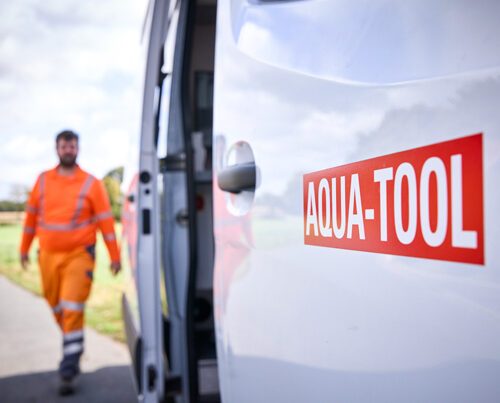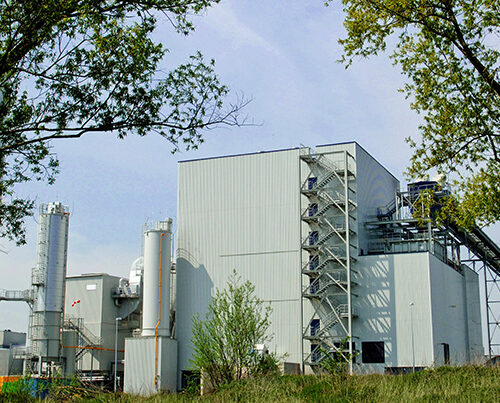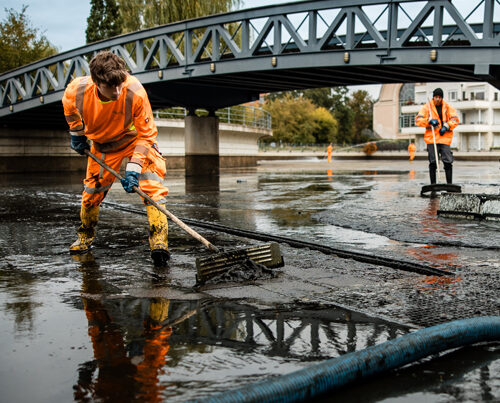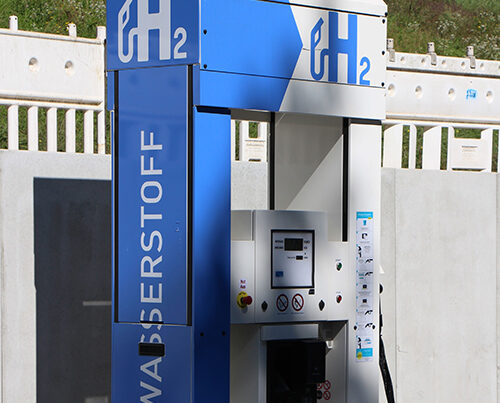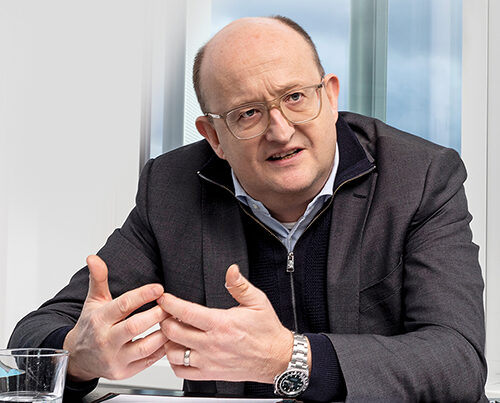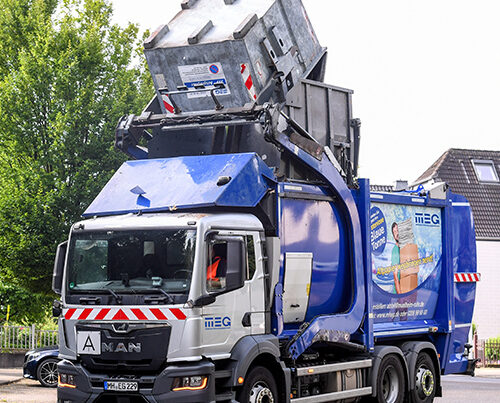STEP Stadtentsorgung Potsdam GmbH has been supporting its cleaning processes with the AI system CORTEXIA for one and a half year – and with great success. According to Karsten Stimming, head of the cleaning department at STEP, the city has become visibly cleaner since then, as he reports in a recent radio programme on Deutschlandfunk. This is particularly evident in the city centre: for example, additional litter bins have been installed at Bassinplatz and Platz der Einheit to improve cleanliness.
The measuring system, which originated in Switzerland, is called CORTEXIA and is operated in Germany by REMONDIS Digital. It has already been tested in Potsdam from September 2022 to the end of March 2023 using a small sweeper. However, the data collected during this test phase was still limited to the city’s cycle paths and pavements. With the expansion to four more sweepers, a comprehensive analysis of the entire city area and a year-round period should then be tackled.
Five STEP sweepers have been upgraded since 1 June 2023. Since then, an integrated camera has not only recorded the extent of the litter, but also the various types of waste that contribute to it, such as cigarette butts, broken glass or paper, practically as they pass by.
Since the start of the project, the camera-equipped sweepers have already covered several kilometres and measured litter levels at various locations in Potsdam’s city centre. The knowledge gained from this technology will therefore enable the city to develop strategies for litter bin management and optimise cleaning schedules. For example, the cleaning frequency for particularly dirty hotspots can be increased and that for very clean streets reduced. With a view to the whole year, seasonal waste bins in urban centres would also be a conceivable measure to reduce littering (carelessly discarded waste).
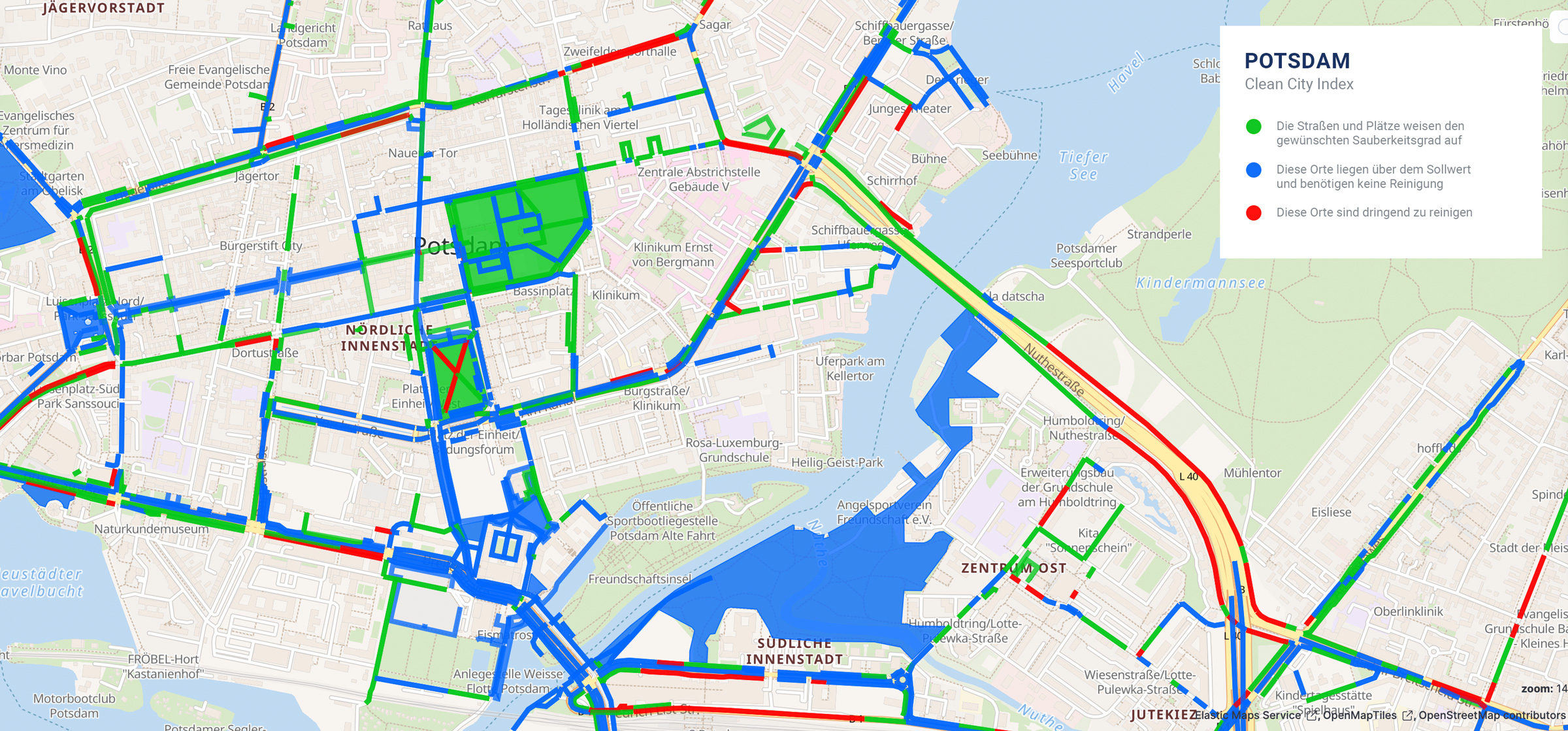
The map shows the Clean City Index of Potsdam
City of the future: cleaner, greener, smarter
Potsdam’s initiative to integrate AI into waste management and street cleaning demonstrates a forward-thinking approach to urban cleanliness. By using CORTEXIA’s advanced data analytics, the city has successfully identified and eliminated waste hotspots, optimised the placement and capacity of collection bins and introduced more efficient cleaning routes. This project not only demonstrates the potential of AI to improve public services, but also sets a benchmark for other cities looking to improve their cleaning strategies. As a result, Potsdam continues to make progress towards a cleaner, greener and smarter urban environment.
Listen to Deutschlandfunk
Street cleaning in Potsdam is therefore constantly evolving. Deutschlandfunk radio recently devoted a radio programme to the subject: Norman Stutz, the sweeper driver, and Karsten Stimming, head of the cleaning department at STEP, talk about their experiences of using the AI system. Johannes Schön from REMONDIS Digital also explains how the AI works and that the more data it contains, the better it works.
Listen to the full radio report here [in German] to the radio report

Image credits: © Stadtentsorgung Potsdam







